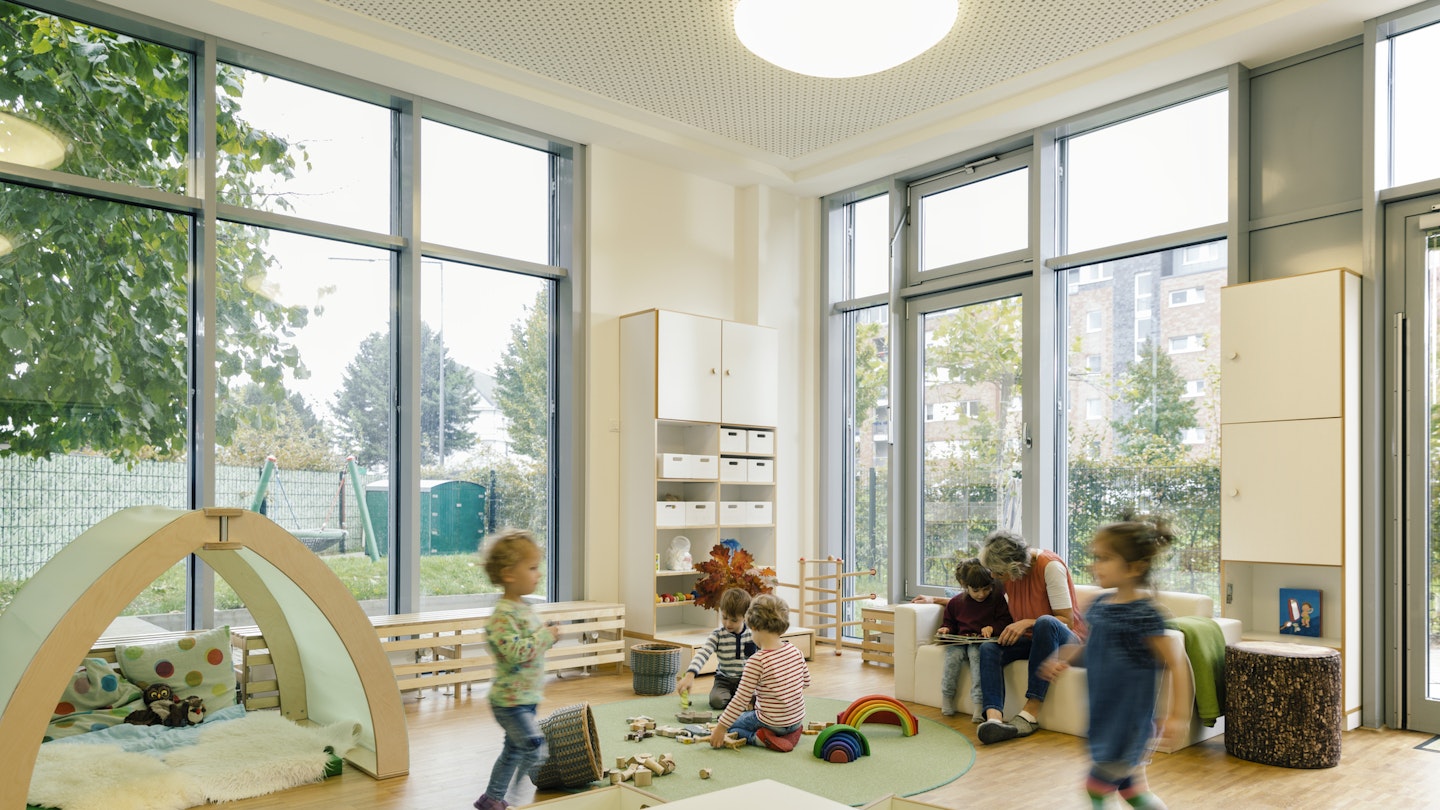The loss of quality child care isn't just a social justice issue, it's scientifically and economically illiterate. What’s more it's our children who will bear the brunt, not just now but for the rest of their lives.
Childcare rows are often framed as the hardworking taxpayer vs 'selfish mums who want it all.' That makes it easy to dismiss arguments about economic unfairness and social injustice. And while the Prime Minister is happy to crowdfund the childcare costs for his sixth (or seventh?) child, the rest of us have to dig deep if we want our children to benefit from decent childcare.
But when I did the research for my new book, How to Build a Human, I found plenty of evidence that this is, to borrow a phrase, an inverted pyramid of piffle.
That’s because the research shows that it truly does take a village to raise a child. Anthropologists who have studied childhood all around the world, and historians who have studied it through time, can tell you that the idea of four years of predominantly “mummy-and-me” time is utterly bizarre! The stay-at-home-mum utterly devoted to her offspring is a relatively recent invention. After a century-long experiment the data is in and it turns out that children are far better off when they get good quality childcare alongside other children.
A groundbreaking research study from Australia showed the enormous impact of early years education outside the home. The research found that children who received good quality nursery education (defined as at least 15 hours a week delivered by a person with a specialist qualification) developed better social and emotional skills than those who missed out.
These children also did better at school, with higher scores on the national assessment program at year three, year nine, and on through graduation. The same research also showed AU$1.2 million in savings on health, social care, and criminal justice costs, because of the life-long improvement in the education and life skills of these children. In fact the increase in parental earnings accounted for only a quarter of the benefits of the programme; the rest of the investment benefited children, and the taxpayer in general, to the tune of $1.50 for every dollar spent.
Of course programmes like these cost money. Here, in the UK, a scientifically and economically illiterate government continues to underfund education to the tune of a 37% shortfall in the earliest years. The early years sector only survives because some nurseries and childminders operate at razor thin margins and are able to charge, passing on the costs to parents.
As a result, many of us are going out to work in order to give our children the chance to experience nursery. To have access to skilled and caring educators that will give them the best start in life. We’re not selfish and we’re not stupid. We know that there are huge benefits for our children in terms of their development. That’s why so many of us continue to work at a loss in order to pay those childcare fees. We’re not economically illiterate; we see the benefits as our children flourish. And yet the government paints us as selfish for making these choices because it refuses to acknowledge the value of early years education over the lifetime of our children.
And of course there are plenty of families who just don’t have access to the kind of money that allows them to take up the supposedly “free” places. With zero hours contracts and unaffordable housing both squeezing family budgets dry, it’s taken Marcus Rashford to shame the government into ensuring that millions of children simply don’t go hungry.
Investing in children’s social, emotional and educational development is not even on the government’s radar. It’s no surprise that places are disproportionately vanishing in the poorest areas. Parents are valiantly struggling on in the face of closed libraries and vanished Sure Start programmes, but nothing can make up for well-resourced early years education.
The refusal to urgently review their lack of funding is a slap in the face to families. The damage that is being done at this very moment will be felt down the decades as children struggle to catch up. If this government truly cared about its levelling up agenda, they’d be funding nurseries, libraries, and early years centres as a matter of urgency, instead of blustering about their all-too-inadequate spending.
Childcare isn’t just about letting women get back to work. In fact childcare alone won’t fix the issue of mothers being pushed out of the workforce: we also need more emphasis on shared parenting and flexible working. The greatest tragedy of the loss of early years childcare places is the impact on children, particularly those in more deprived areas.
After the stonking110,000 signatures and counting on the Childcare Change petition it is astonishing that the government has refused to review its shameful underfunding of early years provision. Thankfully the campaign by Grazia, The Juggle and Pregnant Then Screwed does mean that there will be a parliamentary debate in September, and, ahead of that debate, it’s essential that our MPs know that good quality early years education is a social justice issue, a public health measure, and an investment that will pay for itself.
Dr Emma Byrne is the Author of How to Build a Human - What Science Knows About Childhood.
